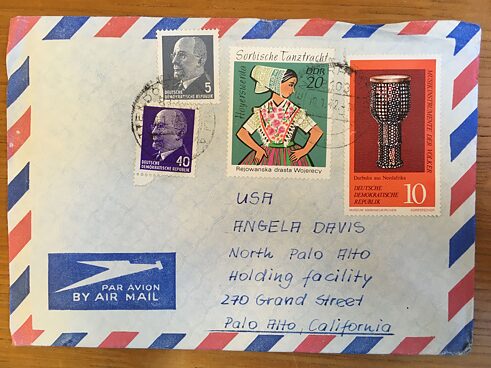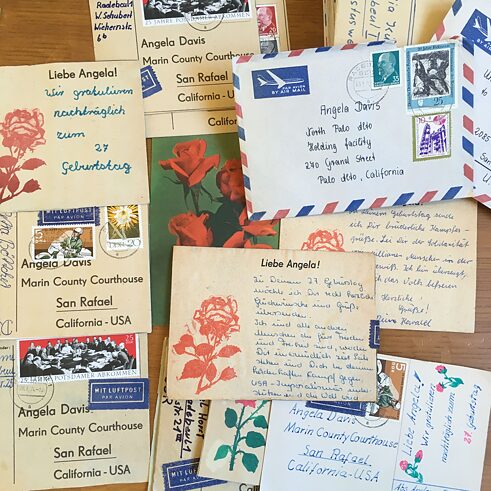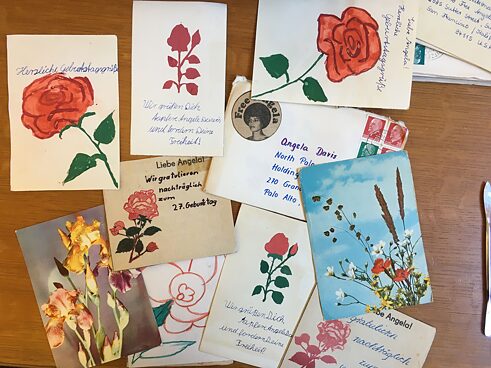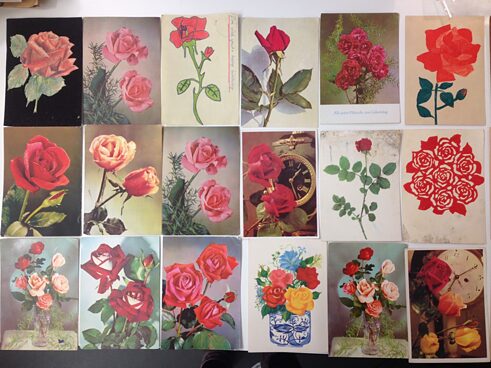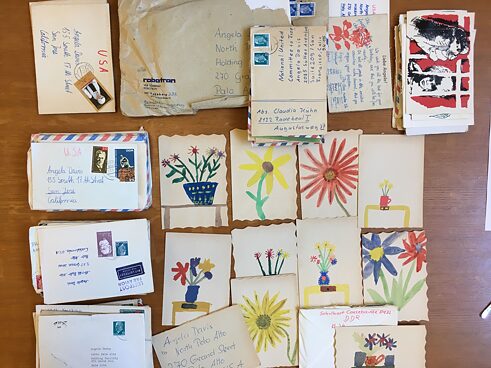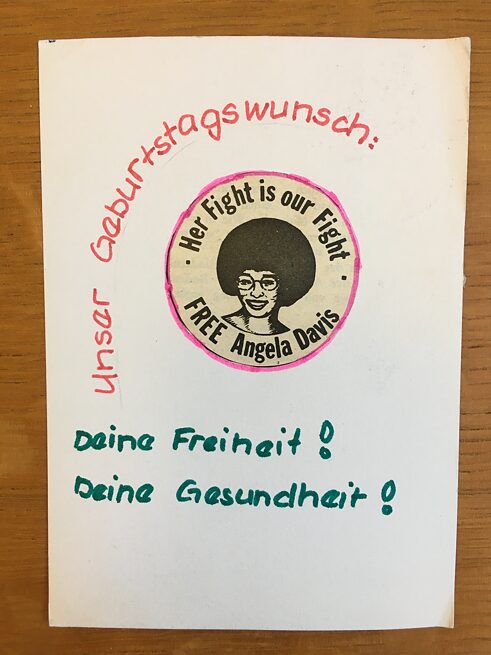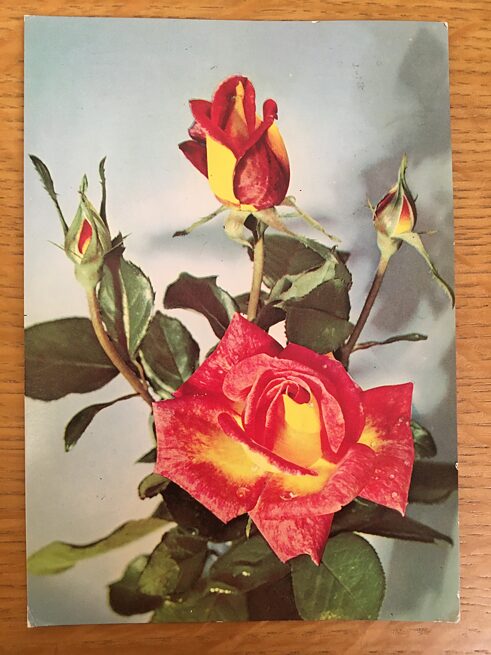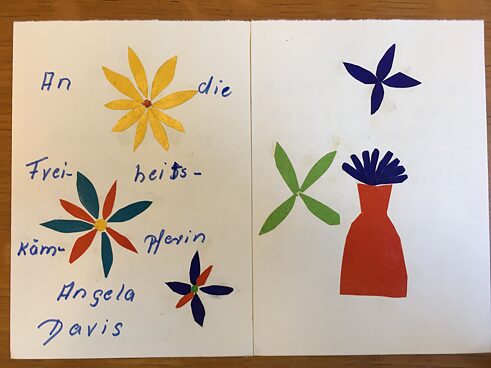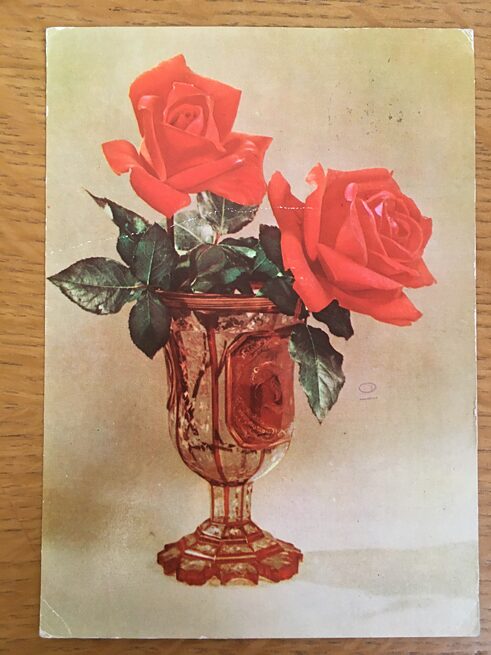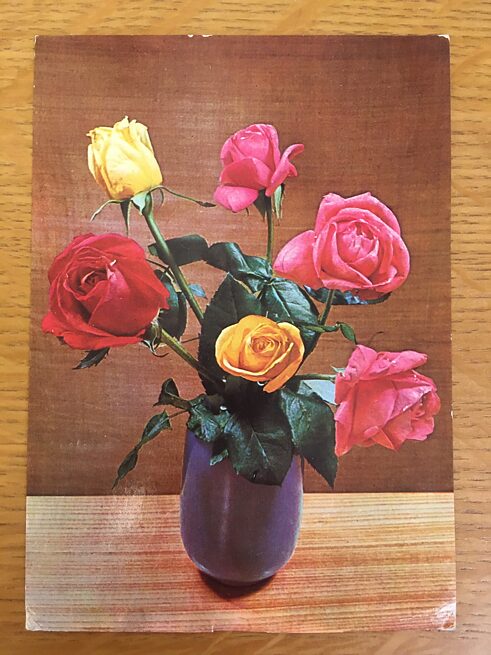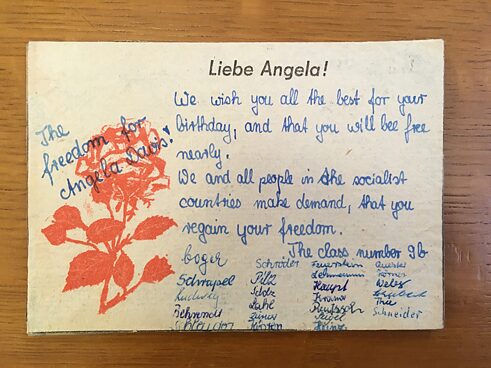03/15/21
-05/15/21
Postcards for Angela Davis
Digital Exhibition|Window Projection
-
Goethe-Institut New York, New York, NY
- Language Englisch
- Price Free
- Part of series: 1 Million Roses for Angela Davis - U.S. Edition

Few East Germans over the age of fifty fail to remember the state-organized solidarity campaign calling for the release of the US philosopher, communist, and Black Power activist Angela Davis. “A million roses for Angela” was the motto of a postcard campaign in 1970-72 in support of Davis, who at the time was being held under terrorism charges. Millions of postcards were sent from the GDR to the court in California in order to support Angela Davis during her trial. Today these postcards are archived in the collections of Stanford University.
In the framework of the event series 1 Million Roses for Angela Davis – U.S. Edition (March-September 2021) and in collaboration with the Albertinum (State Art Collections Dresden), the Goethe-Institut New York is presenting 70 of these digitized postcards.
The postcards were written between 1970 and 1972 as part of a large-scale state campaign. They firmly anchored Angela Davis within the cultural memory of the GDR, which — in this critical phase of the Cold War — sought to position itself by asserting its commitment to the Black comrade. Millions of postcards were sent to the court in California in order to support her trial. Today these postcards are archived in the collections of Stanford University.
In the GDR, the media spun Davis as the “heroine of the other America” and after her acquittal, she was welcomed as a state guest. For her part, Angela Davis had hoped for an internationalist movement promoting a socialist, feminist, and non-racist democracy — the antithesis of her experiences of violence and oppression as a Black woman in the USA. This moment of hope, projection, and contradiction provides the historical starting point for an exhibition of contemporary art in Dresden as well as a multi-faceted program with artists and intellectuals in the US. More information: www.goethe.de/us/onemillionroses
Materials are drawn from the National United Committee to Free Angela Davis collection (M0262). Courtesy of Department of Special Collections, Stanford Libraries, and the Lisbet Tellefsen Archive.
In the framework of the event series 1 Million Roses for Angela Davis – U.S. Edition (March-September 2021) and in collaboration with the Albertinum (State Art Collections Dresden), the Goethe-Institut New York is presenting 70 of these digitized postcards.
The postcards were written between 1970 and 1972 as part of a large-scale state campaign. They firmly anchored Angela Davis within the cultural memory of the GDR, which — in this critical phase of the Cold War — sought to position itself by asserting its commitment to the Black comrade. Millions of postcards were sent to the court in California in order to support her trial. Today these postcards are archived in the collections of Stanford University.
In the GDR, the media spun Davis as the “heroine of the other America” and after her acquittal, she was welcomed as a state guest. For her part, Angela Davis had hoped for an internationalist movement promoting a socialist, feminist, and non-racist democracy — the antithesis of her experiences of violence and oppression as a Black woman in the USA. This moment of hope, projection, and contradiction provides the historical starting point for an exhibition of contemporary art in Dresden as well as a multi-faceted program with artists and intellectuals in the US. More information: www.goethe.de/us/onemillionroses
Materials are drawn from the National United Committee to Free Angela Davis collection (M0262). Courtesy of Department of Special Collections, Stanford Libraries, and the Lisbet Tellefsen Archive.
Location
Goethe-Institut New York
30 Irving Place
New York, NY 10003
USA
30 Irving Place
New York, NY 10003
USA
